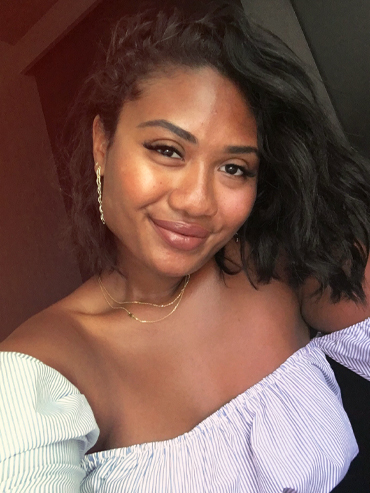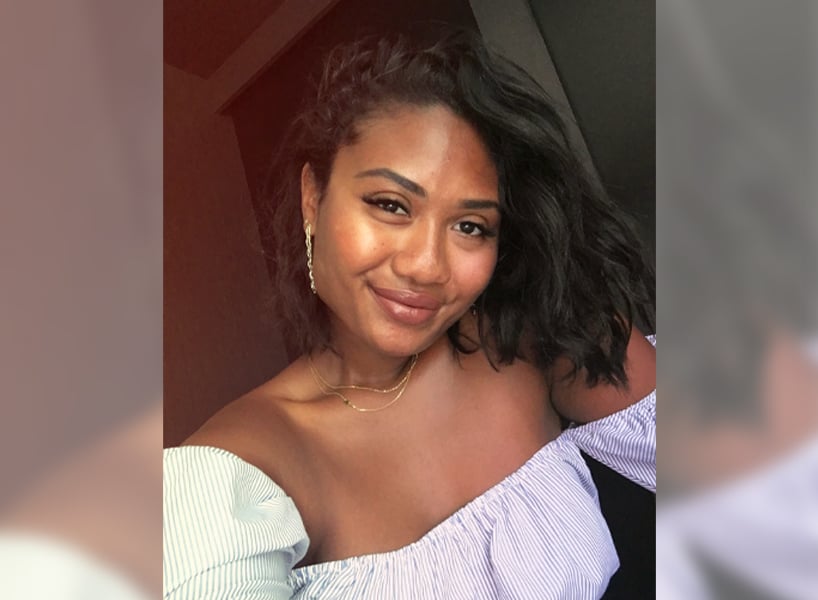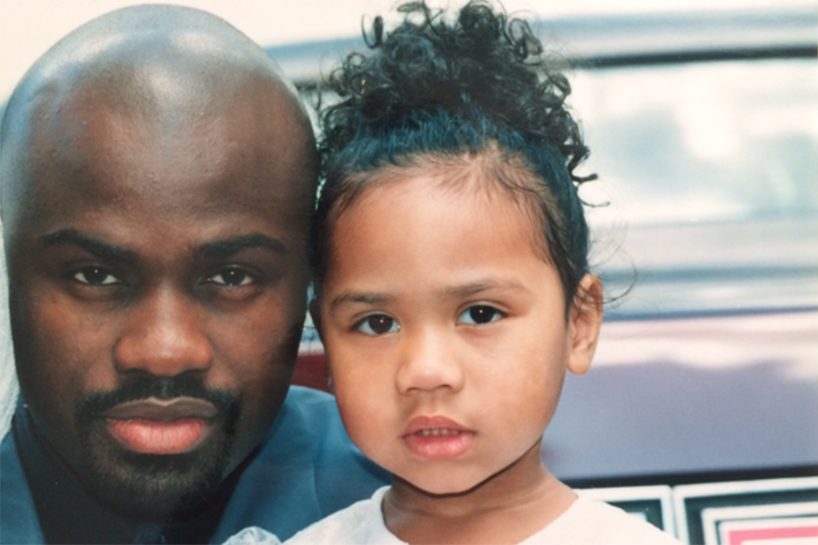I Couldn’t Embrace My Natural Hair Until I Unlearned Internalized Racism
For years, I refused to admit that I held Black hair at a lower standard than any other kind of hair


It was the morning of my aunt’s wedding and I was making my debut as a junior bridesmaid. I’d just turned 13 and I was super excited to get glammed up with all the other bridesmaids at the hair salon. Sitting in the hairdresser’s chair, I remember watching her pull my thick and tightly curled hair out of its ponytail and say, “Wow, this is going to be fun.”
I was with the Asian side of my family, and I was the only Black girl in the bridal party. (I’m half Jamaican and half Filipino). I blushed and laughed uncomfortably with the hairstylist and her colleagues. But it didn’t stop there. Not even halfway through the flat-ironing process, one of the other hairdressers complained about difficulties with another bridesmaid’s hairstyle when my hairdresser replied: “At least you don’t have to deal with this,” nodding towards my voluminous mane, sectioned and pinned in all directions.
That was the first time I remember feeling self-conscious about my hair—less than a year later, I began straightening it every day. From high school through university, until my early twenties, I wore my hair straight so often (either by using a flat iron or keratin treatments) that even some of my closest friends thought it was natural.
What was meant to be a joke in the hair salon that morning actually marked the beginning of a hair journey filled with insecurities. Now, in my mid-twenties, I’ve finally decided to embrace my natural curls. But it took some serious self-reflection to get here.
Being mixed race played a role in my own prejudice
My hair is a mix of my parents’ hair types. While it’s fine like my Filipino mom’s, it has a 3a to 3b curl pattern to it, which comes from my Jamaican dad’s side.
Growing up in suburban Ontario, I only knew a handful of other Black girls, so I wasn’t often exposed to what natural Black hair even looked like. Not to mention that natural hair was not visible on TV and in magazines the way it is today. As a result, I told myself that I was lucky to have “good hair” because of my Asian roots—because Black hair was considered “bad.” Stereotypically speaking, Asian hair has always been fetishized for its often straight, silky qualities, so of course I leaned in to that side of my identity.
For instance, the first time a classmate ever asked if my hair was “real,” I scoffed at the idea of me wearing a weave. I was in Grade 9 and I remember I couldn’t wait to tell my mom about the perceived insult after school. It wasn’t apparent to me then, but Eurocentric beauty standards were causing me to be prejudiced against my own culture. In the same way that Black hair was portrayed in media as undesirable, I subconsciously thought having a weave meant I was unfortunate.
Karlyn Percil, a Toronto-based author and career coach, says this internalized racism is a common experience for many Black women including herself.
“My hair journey has been tied to my self-worth and my definitions of self-love, but I didn’t realize that until I was older,” Percil told me at a recent natural hair event in Toronto hosted by Shea Moisture, a Black women’s hair care line.
Having grown up in the Caribbean, Percil recalls always having to get her hair braided for school, while other girls could wear their hair down, and being called nicknames like “nappy head” and “pygmy hair.” “Shame and internalized racism can become a way of being,” she says. “Even if it’s harmful for us, we don’t know it, because that’s all we know.”
For years, I refused to admit that I held Black hair at a lower standard than any other kind of hair, but in my journey towards embracing my hair I’ve committed to unlearning that internalized racism day by day.

Embracing your natural hair is empowering
I decided to go back to my natural hair because, one: I started to feel increasingly unlike myself with my pin-straight hair, and every time I straightened it I was reminded of how much effort I was putting in to reject who I really was. And two: because strangers and friends alike kept telling me that “I didn’t look Black.” The first time someone told me that, I felt an emptiness in the pit of my stomach that I didn’t expect. I wasn’t bothered so much by what other people thought, but by the fact that I felt like I was actively hiding a part of my identity that I was in fact proud of.
Eboni Morgan, founder of Eboni Curls Blog, had a similar turning point when she was in high school. After going through different phases of braids, extensions and perms by the time she was 13, she decided to chop her hair off one night in her bathroom and start on her own natural hair journey.
“Growing up, I was so used to viewing my hair as being difficult or not easy to manage, and I was kind of tired of looking at it that way, especially when I had all of the tools sitting right in front of me,” Morgan told me. “It’s disheartening to hear that your appearance in its most natural state isn’t good enough.”
After her chop, Morgan created Eboni Curls Blog as a way to inspire and encourage self-love within the Black beauty community.
Accepting yourself can be a political act—but it doesn’t have to be
Morgan points out that not all women of colour embrace their natural locks to make a statement about Black hair politics. While I agree that there’s a lot to unpack there, embracing your natural hair can also just be a personal choice, and that’s the beauty of it.
“Whenever a Black woman decides to wear her hair natural, it’s almost always coupled with being a political statement, when in reality it shouldn’t be. It’s just a journey that the individual wants to take,” Morgan says.
As I continue to dig into the complex relationship I’ve had with my hair, I remind myself that I’m consciously doing this for myself, and not for anyone else.
Because these days, I’m not the same shy, embarrassed girl that I was at that hair salon. I’m proud of where I come from and know that I always will be, whatever my hair looks like.
During our interview, Percil mentioned a lyric from Bob Marley’s Redemption: “Emancipate yourselves from mental slavery. None but ourselves can free our minds.”
I have always found those words to be powerful, but never as much as when I applied it to embracing what it means to be me—all of me.








